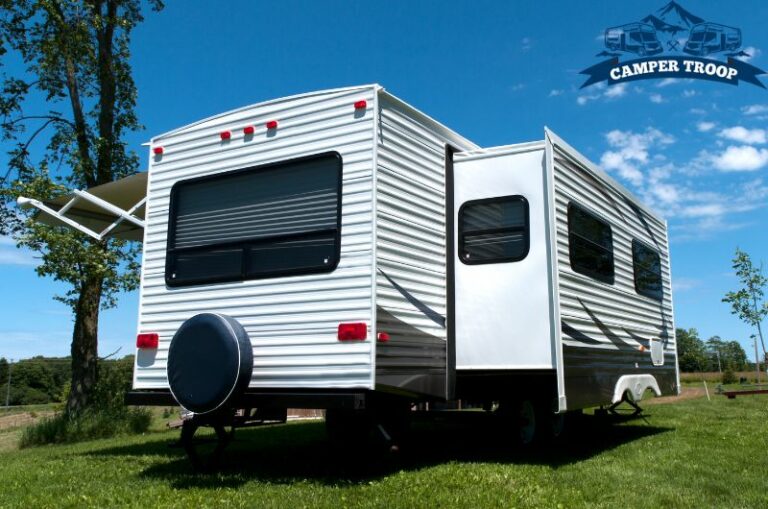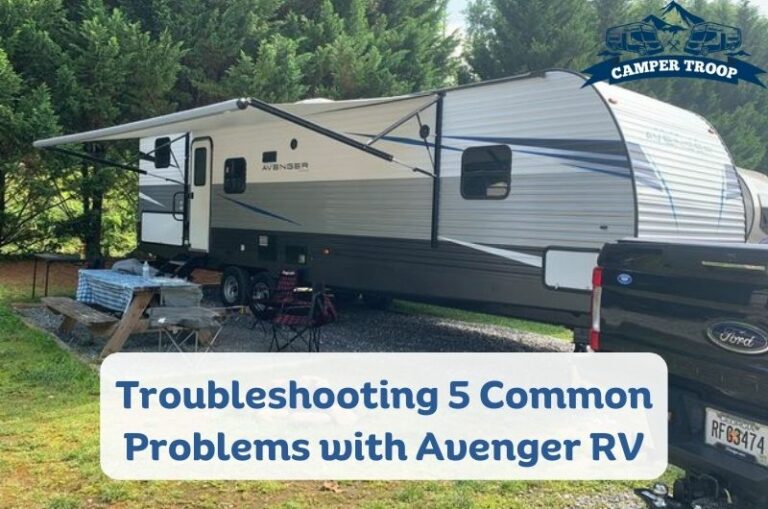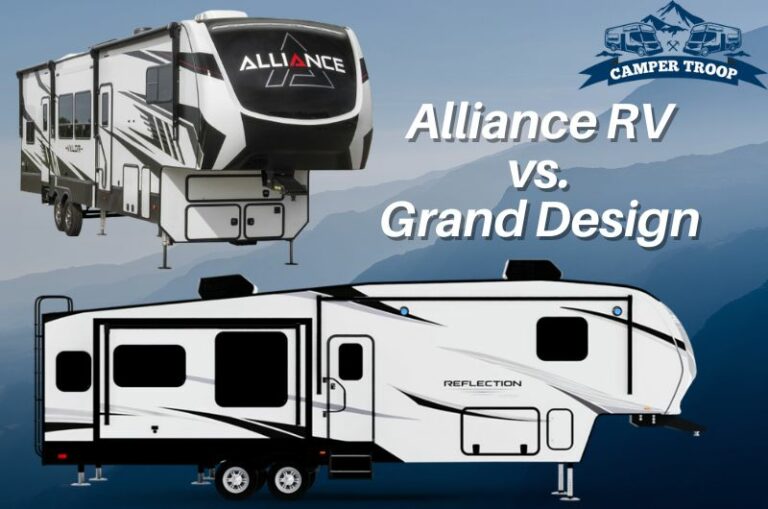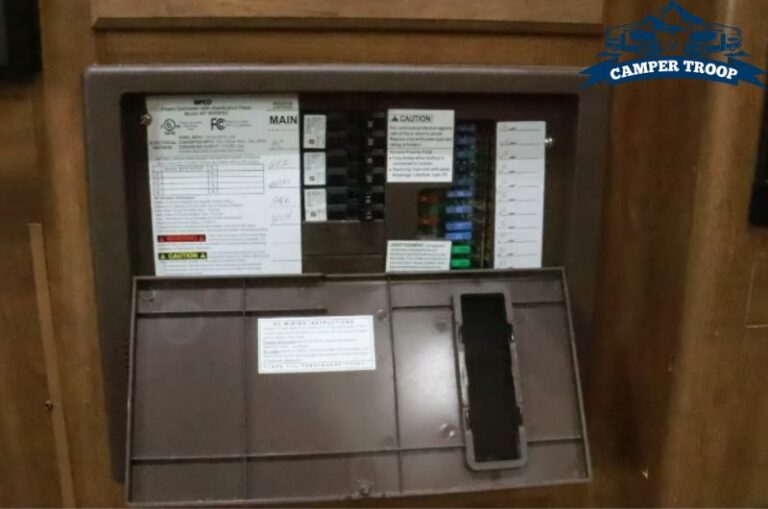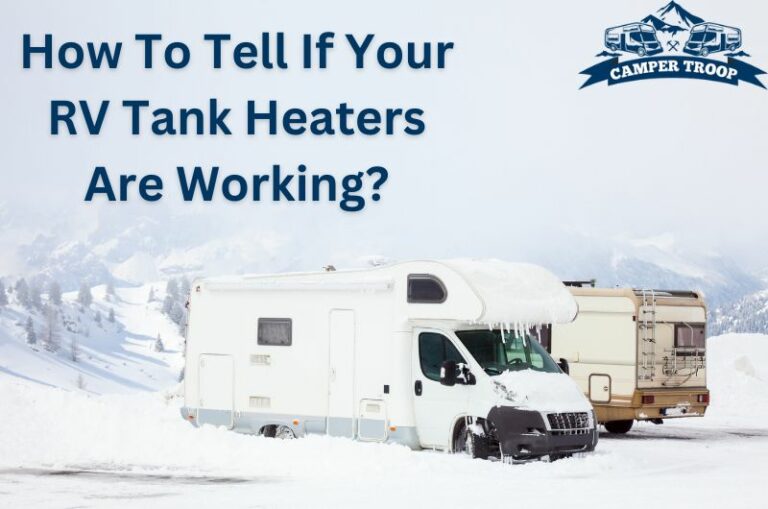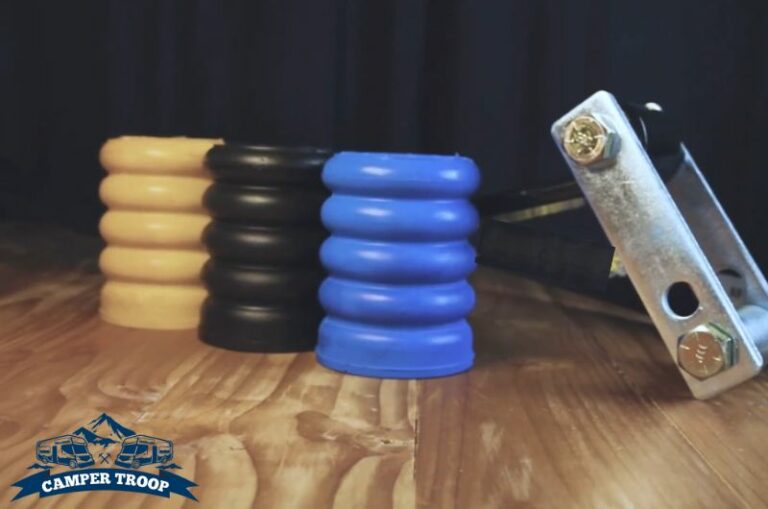Electric or Hydraulic RV Leveling System: What Is Better?
Recreational vehicle leveling systems or jacks are familiar among RV enthusiasts. Two types of RV jacks are available in the market: electric and hydraulic. Both have their own sets of features, benefits, and drawbacks. So, which one to choose, the electric or hydraulic RV leveling system?
Choosing any of them completely depends on your needs and preferences. Hydraulic jacks are stronger and faster compared to electric systems. Alternatively, electric RV jacks are easy to use, and manual labor is unnecessary. On the other hand, hydraulic RV jacks are powered by fluid pressure, requiring manual pumping.
This comprehensive guide explores the factor to help you with which leveling system to choose for your RV. Let’s get going.
Electric or Hydraulic RV Leveling System – Comparison Chart
Here is a quick comparison chart for the electric RV leveling system vs. the hydraulic one. Read them carefully.
| Parameter | Electric RV Leveling System | Hydraulic RV Leveling System |
| Power Source | Battery | Manual |
| Price | Inexpensive | Expensive |
| Lifting Capacity | Low | High |
| Heat Dissipation | Overheats | Doesn’t heat |
| Maintenance Cost | Cost-efficient | Tend to leak, higher than electric jacks |
| Portability | Lightweight, easy to carry | Bit bulky, challenging to transport |
| User-friendliness | Easy to use | Manual labor is required |
What are the Key Differences between Electric RV Leveling Systems?
I briefly discussed electric and hydraulic RV jacks’ features, pros, and cons in this section. Be attentive when reading, as missing any point may lead to a wrong decision.
Operating Power
RV batteries provide the necessary power to electric RV jacks, making them convenient. All you need to do is connect the leveling system to your RV battery and raise or lower it according to your requirement by pressing a button. However, there is a concern. These RV jacks are only workable when your RV engine is running. As a result, there are better choices than these for emergencies like tire changing.
Whereas the hydraulic leveling system uses fluid power to raise or lower the jacks. Meaning that they can operate without taking assistance from an external power source. This way, these are a good option for emergencies. But they are less convenient to use compared to electric ones. To raise and lower the jacks, pumping the handle of the leveling system is a must.
Read Also: Reasons & How to Fix RV Leveling Jacks Won’t Extend Problem
Weight
In terms of weight, an electric leveling system has benefits over hydraulic systems.
Since the RV motor powers the electric jacks to complete heavy lifting jobs, they don’t have any additional components. So, they are designed to be lightweight.
While the hydraulic leveling system depends on the user’s power to lift an RV. Thus, they are a bit bulkier. Moreover, hydraulic RV jacks are powerful, allowing you to lift heavy loads without hassle.
Lifting Power
In order to operate a hydraulic leveling system, you will have to pump the handle up and down. As a result, a fluid gets forced into a cylinder, resulting in the rise of the jack.
In comparison, a motor powers an electric jack. Also, the user only needs to press the enclosed button. When it comes to raw lifting power, the hydraulic leveling system wins the race. Conversely, you won’t have to sweat operating electric jacks. But manual labor is mandatory when working with hydraulic RV jacks.
Read Also: Manual Trailer Jack Won’t Go Up or Down: How to Repair It?
Lifting Capacity
Do you own a bulky RV? Then you can use a hydraulic leveling system to lift your recreational vehicle. Hydraulic RV jacks are powerful and manufactured to lift heavy objects. The fluid pressure generates enough lifting pressure, allowing the user to lift a heavy RV without major trouble. At the same time, they provide stable performance, and you will barely experience tip over.
The lifting range of electric RV jacks is shorter. As this leveling system relies on electricity to run the motor that powers the jacks, it fails to generate lifting force like hydraulic jacks.
If you prefer high lifting capacity, go with a hydraulic leveling system
Heat Dissipation
Electric jacks can reach high temperatures quickly. Thus, you will face overheating issues with them. Such a problem can damage the leveling system. In the worst case, overheating can cause a fire. There are better choices for RV enthusiasts who frequently use RV jacks.
On the flip side, the hydraulic leveling system will not overheat. These jacks consist of fluid, helping to dissipate heat effectively. It means if you use it for a prolonged period, hydraulic jacks will always offer efficient service.
In addition, overheating reduces the lifespan of electric RV jacks. Thus, hydraulic jacks are more durable than electric jacks. Therefore, hydraulic ones are a good option if you use the leveling system frequently.
Read Also: Why Bigfoot Levelers Won’t Retract & How to Fix This Issue?
Price & Maintenance
Price is another key difference between hydraulic and electric leveling systems.
You have to pay more to buy a hydraulic jack. Also, long-term service from hydraulic leveling systems is guaranteed if you maintain them properly. Otherwise, you will not get efficient performance from them.
While electric leveling systems are less expensive. Moreover, you won’t have to spend much on their maintenance cost. For their cost-efficient characteristics, many RV enthusiasts prefer them over hydraulic ones.
Portability
Portability is another key difference between an electric RV leveling system and vs. hydraulic one.
Electric jacks are compact, lightweight, and smaller. For this reason, they are easy to transport. Simultaneously, you can store them easily in a tight space. So, if you want to carry an RV jack stand in your trailer, buy an electric RV jack.
In contrast, hydraulic RV jacks are bulky and take up much space when stored. This means a hydraulic leveling system suits your workshop or garage more. You will also need help to transport them from one place to another.
User-friendliness
You have to use the remote control to operate an electric leveling system. It means they are handy when you need to lift your own RV. In many cases, they require to be connected to a battery. Make sure to keep fresh or new batteries before using them.
In contrast, a hydraulic RV leveling system requires it to be operated manually. It can be challenging if you try to lift a heavy RV of your own. However, don’t assume that you will always have to carry new batteries to work with them.
Read Also: HWH Leveling System Troubleshooting [Things You Should Know]
Electric or Hydraulic RV Leveling System – Which is Better?
As mentioned, choosing any leveling system relies on your personal choice. However, if you are still trying to decide which one to choose, here are my 2 cents.
Choose an electric RV leveling system, if
- Your preference is the ease of use
- Your budget is tight
- You use RV jacks too frequently
Choose a hydraulic RV leveling system, if
- You want high lifting capacity
- You are looking for an RV leveling system for your garage
- You prefer more lifting power
Read Also: Lippert Leveling System Won’t Turn On: Reasons And Solutions
FAQs.
What are the advantages and disadvantages of an electric RV leveling system?
Electric RV leveling systems can be a lifesaver in some situations, while they are not a good performer in a few circumstances.
Benefits
- Requires minimal effort to use
- Faster and stronger
- Cost-efficient as they less likely to damage
- Lightweight and portable
- Easy to store
Drawbacks
- Overheats, causing damage to the tool
What are the advantages and disadvantages of a hydraulic RV leveling system?
Like all other tools, the hydraulic RV leveling system also has benefits and drawbacks. Consider the below pros and cons before making a buying decision.
Benefits
- Makes a wide range of tasks easier
- Incredibly helpful when lifting high capacity
- Damn accurate
- Provides smooth and stable performance
- Versatile tool
Drawbacks
- Susceptible to leaks
How crucial are leveling jacks on an RV?
A leveling jack keeps your trailer away from bouncing every time. Moreover, some trailer components require proper leveling for the best performance.
Such a component is a refrigerator. Gas flow can’t happen accurately if your RV is incorrectly leveled. In this case, a leveling system comes in handy. Also, you can get the correct reading of your RV holding tank when the RV is perfectly leveled.
Summing Up
Remember to consider your requirements when you are looking for an electric or hydraulic RV leveling system.
Most enthusiasts prefer hydraulics over electric ones because they have high lifting capacity and provide stable performance. In comparison, others use electric RV jacks for their ease-of-use nature and lightweight characteristics.
Whatever option you choose, hydraulic or electric, makes life easier.
Read Also: Why Are All the Lights Flashing On LCI Electronic Leveling?

Zayan is an accomplished author and a go-to expert for all things RV and camper-related. With a passion for adventure and a knack for problem-solving, he has spent years exploring the open road and fine-tuning his knowledge of recreational vehicles.
Zayan’s writing is a testament to his expertise, offering readers practical solutions to common RV dilemmas. Whether it’s troubleshooting mechanical issues, optimizing space, or planning the perfect road trip, Zayan’s insightful advice and engaging storytelling make him an invaluable resource for both seasoned travelers and newcomers to the world of RVing.

